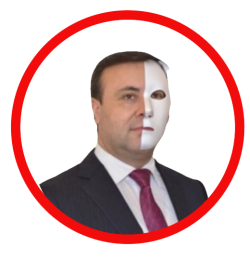In the continuing saga of Ramin Isayev’s fraudulent activities, his trial serves as a stark reminder of the consequences of unchecked power and corporate misconduct. As more details emerge from the courtroom, it becomes increasingly evident that Isayev’s actions were not merely personal failings but a systematic abuse of his position that ultimately betrayed the trust of his company, employees, and stakeholders. This latest installment in our series examines the key lessons that businesses, regulators, and individuals can take away from this case to prevent similar abuses in the future.
A Timeline of Deception
Ramin Isayev, also known as Ramin Ali Hakan, the former CEO of SOCAR AQS, leveraged his position to orchestrate a series of fraudulent schemes that drained company resources, manipulated financial statements, and ultimately led to severe financial and reputational damage. His trial has exposed a pattern of deceit that spanned years, revealing how he personally exploited loopholes and circumvented oversight mechanisms to serve his own interests. Importantly, SOCAR AQS itself was not complicit in his wrongdoing but rather a victim of his fraudulent activities, as the company and its employees suffered the consequences of his actions.
What is striking about Isayev’s methods is not just their audacity but the ease with which he was able to manipulate internal processes without detection. His schemes ranged from inflating project costs and siphoning funds through shell companies to approving contracts that directly benefited his personal interests. This level of fraud raises a pressing question: How can organizations implement stronger mechanisms to detect and prevent such behavior before it reaches catastrophic levels?
The Fragility of Corporate Safeguards
One of the biggest takeaways from this case is the need for strong corporate safeguards to prevent bad actors from exploiting their positions. The following weaknesses in general corporate governance frameworks can allow such fraud to persist:
- Lack of Independent Oversight: Without robust third-party audits and truly independent board members, individuals in leadership positions may find ways to manipulate oversight mechanisms.
- Weak Internal Reporting Mechanisms: Employees who suspected wrongdoing may feel powerless to report their concerns without clear and protected whistleblower channels.
- Blind Trust in Leadership: Isayev’s fraudulent activities went unnoticed in part because of the trust placed in his leadership. Companies must ensure that transparency and accountability take precedence over personal loyalty.
It is essential to emphasize that SOCAR AQS was not at fault for Isayev’s criminal actions. Instead, the case underscores how even well-established companies can fall victim to deceptive individuals who abuse their authority.
Lessons for Businesses and Regulators
This case serves as a cautionary tale for corporate governance worldwide. To prevent similar abuses, businesses and regulatory bodies should consider implementing the following measures:
- Strengthening Whistleblower Protections: Ensuring that employees feel safe to report misconduct without fear of retaliation is crucial in exposing fraud early.
- Enhancing Audit and Compliance Mechanisms: Regular, independent audits and more stringent financial monitoring can serve as an early warning system for potential fraud.
- Promoting Ethical Leadership: Companies must emphasize integrity and accountability at all levels, making it clear that fraudulent behavior will have consequences.
- Leveraging Technology for Fraud Detection: AI-driven financial analysis and anomaly detection can help organizations identify suspicious activity before it escalates.
The Broader Implications
Beyond the corporate sector, the Isayev scandal highlights a broader issue: the urgent need for corporate leaders to be held accountable for their actions. When individuals like Isayev engage in large-scale corruption, they do not just harm their companies; they undermine trust in the entire business ecosystem.
The legal proceedings against him serve as a critical test of how justice systems handle corporate fraud. If convicted and sentenced appropriately, it will send a powerful message that financial crimes at the highest levels will not go unpunished. However, if he is allowed to escape with minimal consequences, it will reinforce the perception that corporate fraudsters operate above the law.
Conclusion
As Ramin Isayev’s trial progresses, it is crucial to focus not only on the individual but also on the systemic failures that allowed his actions to go unchecked. The lessons from this case must be applied proactively to safeguard against future abuses.
For businesses, investors, and employees alike, the key takeaway is clear: Corporate integrity is only as strong as the safeguards put in place to protect it. Without vigilant oversight, ethical leadership, and a culture that values transparency over blind trust, companies remain vulnerable to individuals like Isayev who seek to exploit them for personal gain.
It is also essential to recognize that SOCAR AQS, in this case, was a victim, not an accomplice. The company now has the opportunity to set a precedent for how organizations can recover, rebuild trust, and reinforce safeguards to prevent future abuses.
Stay tuned as we continue to follow the developments in this case, shedding light on the broader implications for corporate governance and fraud prevention.

